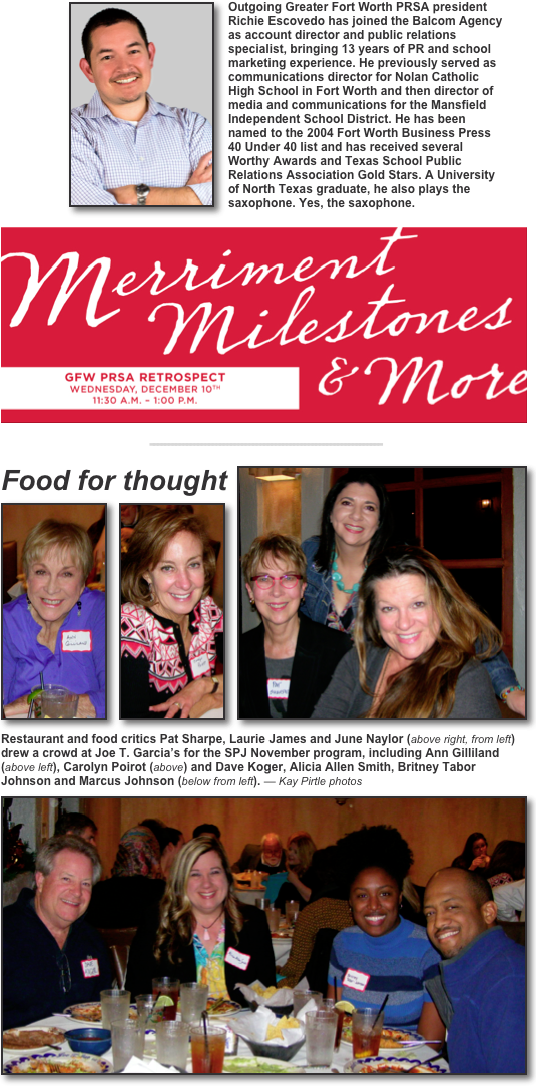
DECEMBER 2014


THIS MONTH IN PR/MARKETING HISTORY BY JEFF RODRIGUEZ
An irreverent look at the people and events that keep us up at night
Fouling the Air
A CEO’s Callous Disregard Caused an Industrial Tragedy — or Did It?
It’s a story we know all too well: Corporate malfeasance causes widespread death
and suffering – and the fat cats at the top walk away unscathed.
That’s how it appeared 30 years ago, on Dec. 2, 1984, when the Union Carbide plant in
Bhopal, India, released tons of toxic gas overnight. In the hours that
followed, more than 3,700 people and thousands of livestock animals died. The
reported number of people injured as a result of the leak would top 500,000.
The man held responsible was Warren Anderson, chairman and CEO of Union Carbide Corp (UCC). It took Anderson four days to
make it to Bhopal, and he was immediately placed under house arrest. Within
hours, he posted bail and left; some reports say the Indian government
encouraged him to leave, while others say the U.S. government pressured India
into freeing him. Regardless, Anderson never returned to India.
Turns out the disaster was far more complicated than it originally appeared.
While Union Carbide was the majority owner, the plant was 49 percent owned by
Union Carbide India Limited (UCIL), a consortium of public and private Indian
investors who, according to one study, insisted that their countrymen design
and operate the plant. In addition, UCC later asserted that the Indian
government had impeded the investigation and that plant staff had falsified
documents to cover up mistakes.
A New York Times study in 1985 concluded that the leak resulted from myriad
problems, including “operating errors, design flaws, maintenance failures, training deficiencies and
economy measures that endangered safety.” In 1987, UCC blamed sabotage by an employee during a shift change. An article
in the New York Times that year quoted an unnamed UCC source as saying, ''We
are 100 percent certain that this accident was caused deliberately. … when you look at the evidence, you can come to no other conclusion.”
Regardless, UCC eventually paid the Indian government $470 million and donated
another $5 million to the Indian Red Cross. In 2010, seven former UCIL
employees, including the former chairman, were convicted in Bhopal of causing
death by negligence.
None of this held much sway with the public, especially in India. For years on
the anniversary of the accident, Indian mobs would make an effigy of Anderson
and beat it. When the United States was searching for Osama Bin Laden, Indians were photographed with a sign saying they would exchange Bin Laden for
Anderson. When the Hindustan Times reported Anderson’s death in September this year, it called him “the man responsible for the death of around 15,000 people,” noting that many in Bhopal celebrated and spat on photos of him.
True, Anderson never stood trial for the incident. He was able to avoid civil
subpoenas and, with the help of the United States government and court
decisions, fend off India’s repeated attempts to extradite him. But he also made some wise PR decisions,
the first being going to India. In addition, the day following the leak, UCC
sent supplies and medical staff to Bhopal.
In an interview with The New Times a few months later, Anderson noted how he and
his wife holed up briefly in a hotel, reading newspaper articles about the
tragedy. When they went to a restaurant, they were conscious about laughing,
worried it might give the wrong impression. And he discussed his feelings of
helplessness: “You wake up in the morning thinking, can it have occurred? And then you know it
has. and you know it’s something you’re going to have to struggle with for a long time.”
Anderson retired in 1986, and Dow Chemical bought UCC in 1999. Its website has a
section on the tragedy.
But there was still one more PR twist to come: On the 20th anniversary of the
leak, a man identified as a Dow representative told the BBC that the company
intended to sell Union Carbide and use the proceeds to compensate the victims
and clean up the site. Dow stock plummeted. Dow issue a statement saying the
man was an impostor. The BBC later corrected the error.
Tragically, the effects of the gas leak linger. Many Indians believe their
government botched handling the case and distributing the settlement funds.
Consider it a good reminder that in the PR world, you have to figure out not
only the right thing to do, but the right way to do it.










